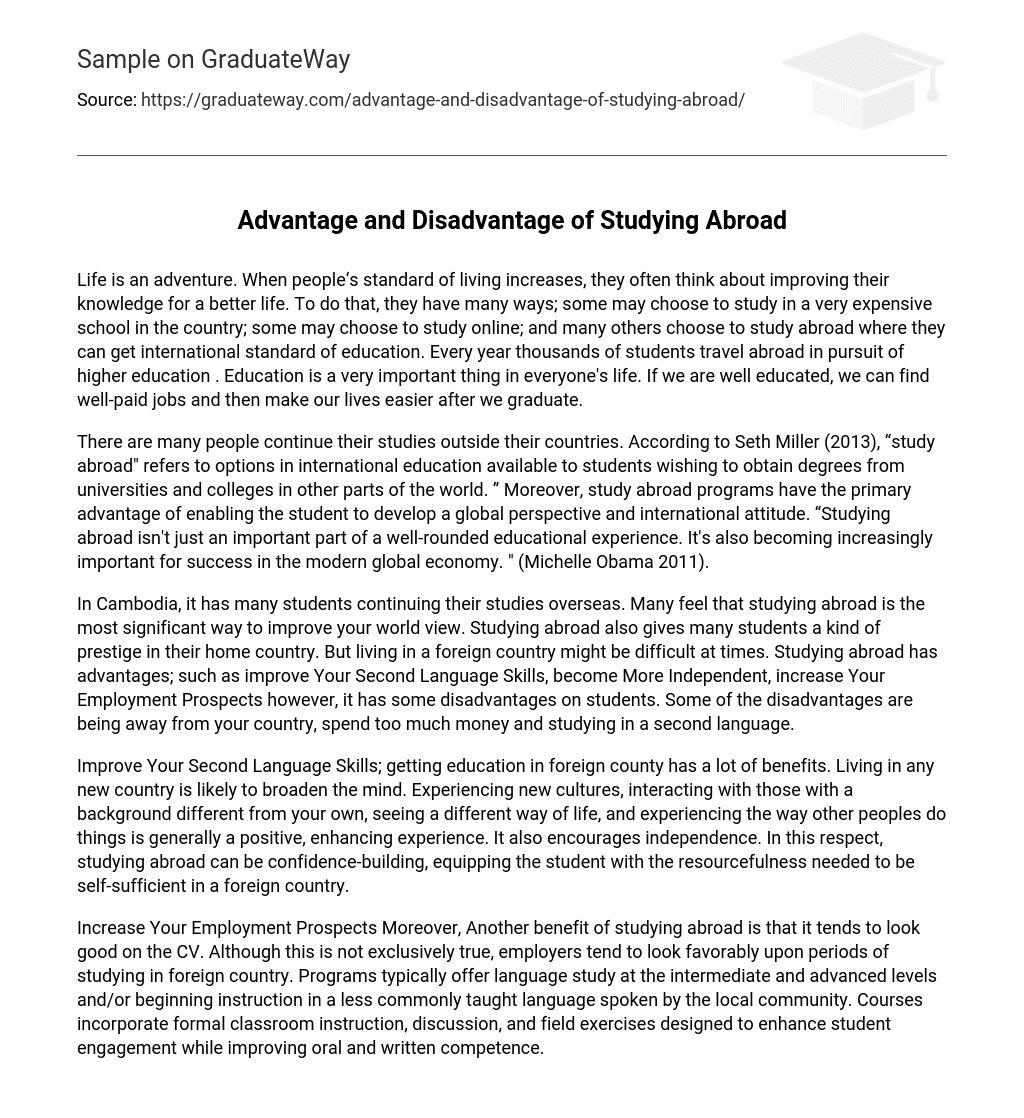Life is a journey, and as we enhance our quality of life, numerous individuals desire to expand their knowledge for a better life. There are diverse approaches to achieve this goal. Some opt for costly schools within their own country, while others favor online study. Nevertheless, many people choose to pursue education abroad in order to experience international learning standards. Every year, countless students journey overseas for higher education. Education holds immense significance in everyone’s life. Through acquiring a good education, we can secure well-paying jobs and improve our post-graduation lives with greater comfort.
Many individuals choose to study abroad. Seth Miller (2013) defines “study abroad” as the different educational opportunities that allow students to earn degrees from universities and colleges in various parts of the world. Furthermore, study abroad programs offer the distinct benefit of fostering a global perspective and an international mindset. Michelle Obama (2011) emphasizes that studying abroad is not just a crucial component of a comprehensive education but also essential for success in today’s global economy.
Many Cambodian students opt to pursue their education in a foreign country, seeing it as an ideal means to expand their worldview and boost their standing back home. However, living in another nation can present obstacles. Despite the benefits like enhanced language proficiency, heightened self-reliance, and improved employment opportunities, studying abroad also brings drawbacks such as distance from home, substantial expenses, and the need to learn in a non-native language.
Improve Your Second Language Skills; education in a foreign country has numerous advantages. Living in a new country can expand one’s perspective. Experiencing different cultures, interacting with individuals from diverse backgrounds, observing alternative lifestyles, and learning about how other people approach things is typically a positive and enriching experience. Furthermore, it fosters independence. Studying abroad can build confidence and provide students with the necessary skills to be self-reliant in a foreign country.
Studying abroad has the advantage of enhancing employment opportunities. It adds value to a CV as employers typically view foreign study experiences positively. Study programs usually include language classes at various proficiency levels, including instruction in less commonly taught languages spoken in the local community. These programs incorporate classroom teaching, discussions, and practical activities to improve students’ speaking and writing skills while keeping them engaged.
Some of our programs are taught either entirely or partially in the target language. By utilizing language skills in daily activities, students on our programs discover that they can not only survive but also flourish in a foreign country. The most effective approach to achieving fluency is by learning another language and completely immersing oneself in an environment where it is spoken. Even if you are not studying the particular language on your course, it may still prove beneficial for future job prospects or personal experiences.





